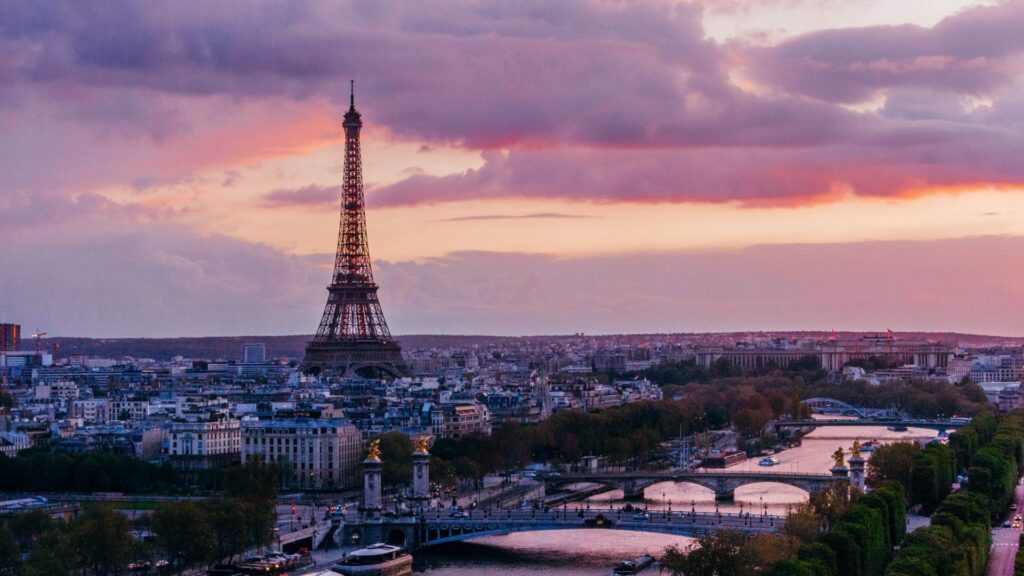The Iconic Eiffel Tower: A Symbol of Paris
The Eiffel Tower, more than just a structure, is a symbol of innovation and the enduring spirit of Paris. Constructed by Gustave Eiffel for the 1889 Exposition Universelle (World’s Fair), it was initially met with skepticism by critics but has since become an emblem of French culture. This iron lattice tower, standing tall in the Champ de Mars, is not just about its height; it’s about its architectural beauty and the way it captures the imagination of everyone who sees it. Visiting the Eiffel Tower is a quintessential Parisian experience, offering breathtaking views of the city and a glimpse into France’s rich history and architectural prowess.

Gustave Eiffel’s Architectural Masterpiece
Gustave Eiffel, a French civil engineer, designed the Eiffel Tower as a temporary exhibit for the World’s Fair. However, its popularity and significance led to its preservation. Eiffel’s use of iron and his innovative techniques in wind resistance were groundbreaking at the time. The tower’s design is not just functional but also aesthetically pleasing, with its symmetrical patterns and open-lattice structure. The Eiffel Tower stands as a testament to Eiffel’s genius and a turning point in architectural design.
A Cultural Beacon in Paris
The Eiffel Tower has played a significant role in popular culture, featuring in countless films, literature, and art. It’s a site where millions have made lifelong memories, from romantic proposals to milestone celebrations. The tower’s lighting, especially at night, adds to its allure, making it a beacon in the Parisian skyline. The Eiffel Tower also hosts various cultural events and exhibitions, further cementing its role as a cultural hub in Paris.

Exploring the Eiffel Tower
Visiting the Eiffel Tower offers more than just the opportunity to admire its structure. The tower features several levels open to visitors, each offering a unique experience. The first and second levels provide dining options and shops, while the summit offers an unparalleled view of Paris. The journey to the top, whether by lift or stairs, is an adventure in itself, offering different perspectives of the tower’s intricate architecture and the city beyond.
The Enduring Legacy of the Eiffel Tower
As our exploration of the Eiffel Tower concludes, it’s clear that this landmark is much more than an architectural feat; it’s a symbol of Parisian and French identity. The Eiffel Tower has stood the test of time, evolving from a temporary exhibition piece to one of the world’s most recognized and beloved landmarks. Its ability to inspire awe, romance, and creativity is unmatched, making it a must-visit for anyone traveling to Paris.
The Eiffel Tower’s influence extends beyond its steel framework; it represents the innovation, culture, and spirit of a nation. For visitors, the Eiffel Tower is not just a sight to behold; it’s an experience that embodies the charm and elegance of Paris. As an enduring legacy of Gustave Eiffel’s vision and French ingenuity, the Eiffel Tower continues to captivate hearts and minds, remaining an iconic symbol of beauty and inspiration in the skyline of Paris.
How long does it typically take to visit the Eiffel Tower?
A visit to the Eiffel Tower can take anywhere from 1.5 to 3 hours, depending on whether you choose to ascend to the summit and the time spent at each level.
Is there a best time of day to visit the Eiffel Tower?
Visiting early in the morning can help avoid crowds. However, seeing the Eiffel Tower lit up at night offers a magical experience, showcasing its stunning illumination.
Can you dine at the Eiffel Tower?
Yes, the Eiffel Tower hosts several dining options. The most notable is the 58 Tour Eiffel on the first level, offering French cuisine with a panoramic view of the city. For a more luxurious experience, Le Jules Verne restaurant on the second level provides gourmet dining with an exceptional view.
Are there any accessibility accommodations for visitors with disabilities at the Eiffel Tower?
The Eiffel Tower is equipped to accommodate visitors with disabilities. Elevators are available for those who cannot use the stairs, and there are reduced rates for disabled visitors and their accompanying persons. It’s recommended to check the official website for the latest information on accessibility services.
Do I need to book tickets to the Eiffel Tower in advance?
It’s highly recommended to book tickets in advance, especially during peak tourist seasons. Advance booking can save time and ensure entry, as the Eiffel Tower has a limit on the number of visitors it can accommodate at one time.
